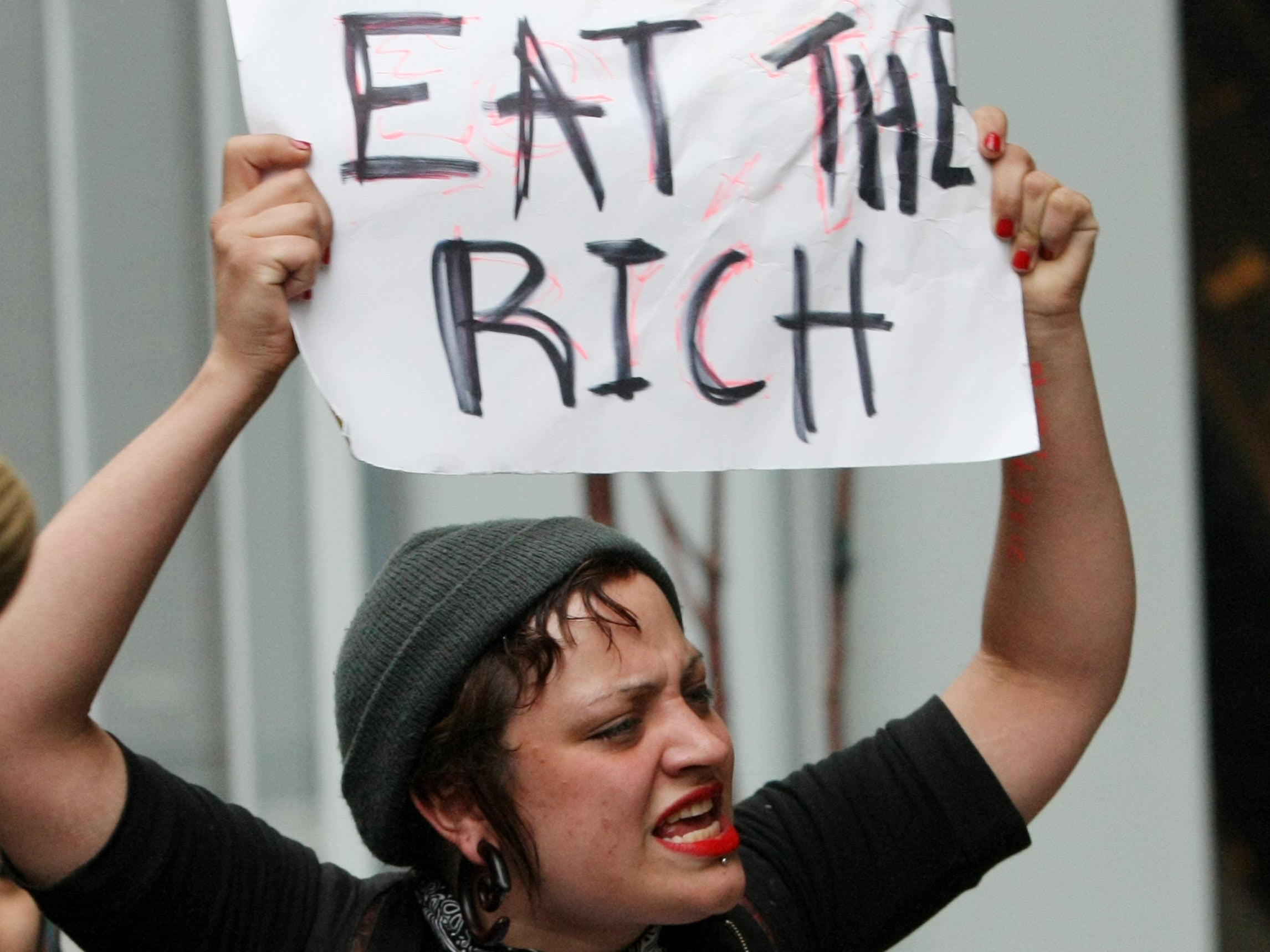Inequality: It's easy to 'scapegoat' the rich, says wealth psychologist
Rich people are a minority who are being unfairly vilified by the public and the media, says adviser to wealthy inheritors

The wealthy are a minority who are being unfairly vilified and used as a "scapegoat", according to a wealth psychology expert.
Jamie Traeger-Muney, the founder of the Wealth Legacy Group, a consultancy that helps inheritors of wealth, said the rich 1% - a group singled out in recent years by groups such as the Occupy Movement - had been portrayed "as something negative" and that it was "easy to scapegoat the rich".
"It's an -ism," she was quoted by The Guardian as saying. "I am not necessarily comparing it to what people of colour have to go through, but ... it really is making value judgment about a particular group of people as a whole."
Some psychological studies have purported to show the truth in the old saying that money does not buy happiness.
A 2011 article in The Atlantic magazine, examining a study by Boston College, noted a "surprising litany of anxieties" in the super rich, including feelings of isolation, self-doubt and tensions with extended, less wealthy, family members.
Over the last few years the wealthy have also had to contend with growing public anger amid the increasing disparity between the richest 1% and everybody else.
The issue was highlighted by the Occupy Movement - which Ms Traeger-Muney noted "had some important things to say about income inequality" - and has been much in the public eye since the financial crisis and the bailing out of the banks.
It has also been seen in the increasing prominence of the work of economists such as Thomas Piketty, author of Capital in the Twenty-First Century, and Angus Deaton, the winner of this year's Nobel prize for economics.
Join our commenting forum
Join thought-provoking conversations, follow other Independent readers and see their replies
Comments
Bookmark popover
Removed from bookmarks